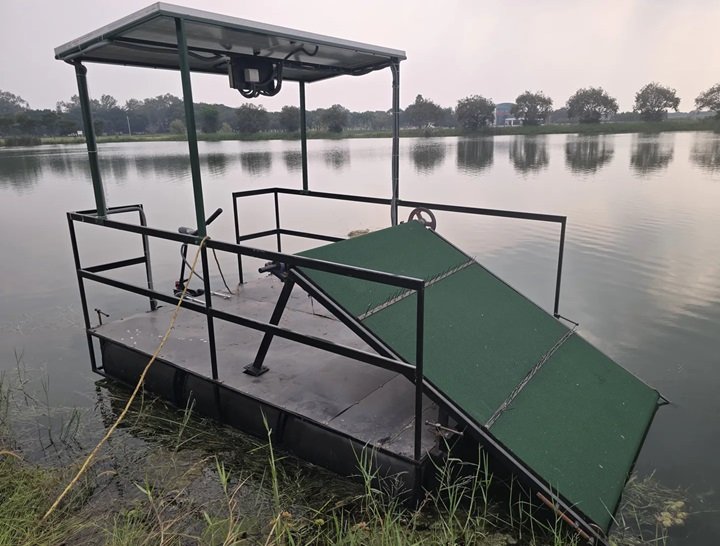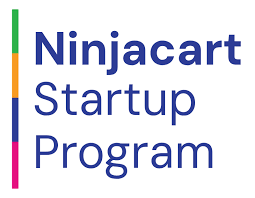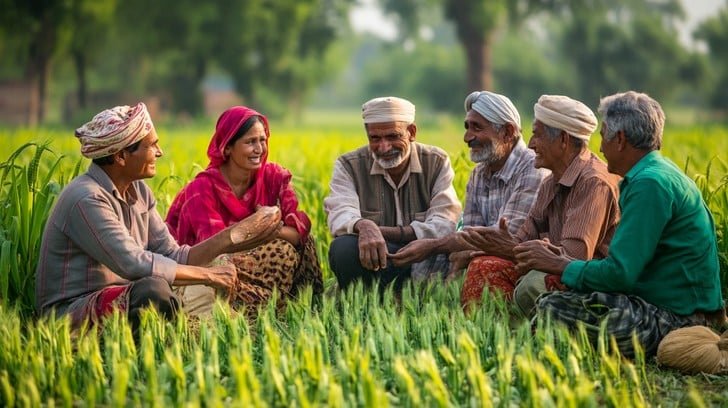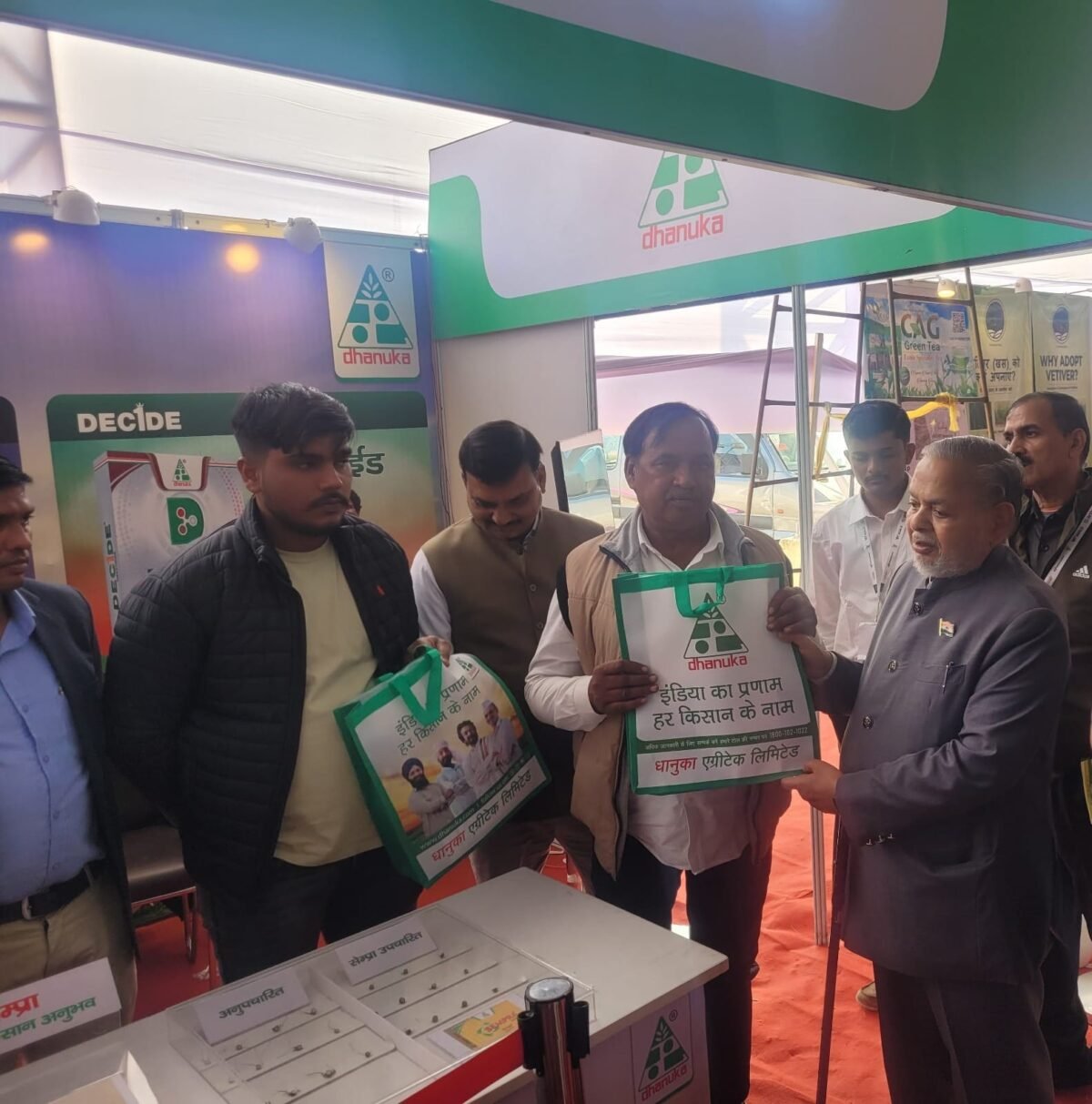ITC, present in around 22 states through FPOs (Farmer Producer Organizations) and working on 20 crops, has plans to expand and deepen it further
ITC is expanding its network of FPOs, further aiming to connect one crore farmers in the next 4-5 years and scaling up sourcing of fruits and vegetables through this platform, said its Agri Business Division CEO S Ganesh Kumar.
ITC, present in around 22 states through FPOs (Farmer Producer Organizations) and working on 20 crops, has plans to expand and deepen it further in states including Madhya Pradesh, Rajasthan, Haryana, Punjab and Bihar.
Besides, ITC is working on expanding the reach of its super app MAARS — a phygital’ initiative with FPOs through which it is providing personalised advisories to farmers from weather forecast to sales of crops at mandi prices, supply of seeds and fertiliser and services as soil testing to helping them get credit from banks.
Through MAARS (Metamarket for Advanced Agriculture Rural Services), ITC is also enhancing agricultural practices to small farmers through technology aggregation, AI-enabled solutions, AgTech and an e-marketplace for commodities and inputs.
“This agri stack and the FPO collectivization is today, at about 1,600 and our ambition is to take it to 4,000 and 10 million farmers in next 4 to 5 years, S Ganesh Kumar told PTI.
ITC is now expanding these FPOs beyond the purchase of traditional crops such as wheat, paddy, maize, soya, chilli and cumins to green peas, mangoes, fruits and green vegetables through a cluster-based approach, he added. These FPOs, formed through the collectivisation of small and marginal farmers for handling agri-related activities, have now become a centre of economic activities in those regions and now ITC is trying to integrate them with the benefits of modern technology and science. Here ITC’s endeavour, under its NexGen Agri vision, is to make small farmers aware of the probable impact of climate change on crop zones and durations, the need for soil rejuvenation, and the importance of crop rotation etc.
“They get the benefits of science, the better inputs in terms of seeds and various other inputs at all the crop stages, supported with an agri tech solutions MAARS,…” he said adding “now farmers are also realising that technology is benefiting them and their economic activity is increasing.”
ITC is the largest corporate house working directly with farmers, helping them improve the productivity and quality of various crops. Its revenue from the ‘Agri Business’ division was at Rs 16,124 crore in FY24, contributing nearly one-fifth to its total revenue.
“At present, around 40 per cent of ITC’s agri procurement from relevant hubs of the 10 states where MAARS has been rolled out, is sourced through MAARS,” he said.
Under NexGen Agri’s vision, which is a part of the ITC Next Strategy, it is also integrating MAARS with startups, where viable agritech solutions will provide efficient grassroots solutions.
It is also encouraging smart practices such as broad bed furrow, use of technology as drones for efficient use of fertiliser and resilient varietals, soil conservation and water stewardship under its Climate Smart Agri initiatives.
“I also believe that as we work closely with the farmer, we will be able to extend more value into that system, in upgrading their produce into residue-free, organic where there are premiums…and introduce varieties, he said.
ITC started the brand Aashirvaad, which is now an over Rs 6,000 crore brand, by directly sourcing wheat from farmers, through its e-choupal network. Now ITC has emerged as the second largest purchaser of wheat after the government-led agencies.
According to Ganesh, this is a win-win situation and “that is how we will be able to build our brands around the theme of quality in the FMCG space.
Now besides Aashirvaad, several of its own in-house brands as Bingo, Farmland, B Natural, Sunrise, Sunfeast etc are part of ITC’s demand-driven agri value chain.
These are our farm level crop connects that we have built over 23-25 years when our FMCG portfolio was launched as a back end support and over a period of this journey, it has also evolved from e-Chaupal to FPOs. Today, we have about 1,660 FPOs with 1.7 million farmers, said Ganesh. Through MAARS, ITC has brought price transparency by connecting the various Mandi price.
“The marriage of all this helps us give precise local, hyper-local solutions to farmers’ problems. Apart from that, relationships that we have built with the agricultural institutes of this country in bringing in good quality seeds and introducing new varieties…have benefited local farmers,” he added.
Through MAARS, ITC is looking to help the farmer with technologies as artificial intelligence (AI). It is in the process of collecting data.
Our software is at a nascent stage, but we will keep layering and collecting the data. The five, seven years of data of a particular geography will definitely help in giving the farmer a better solution in the years to come because it is predictive in that sense,” he said.
ITC, present in around 22 states through














